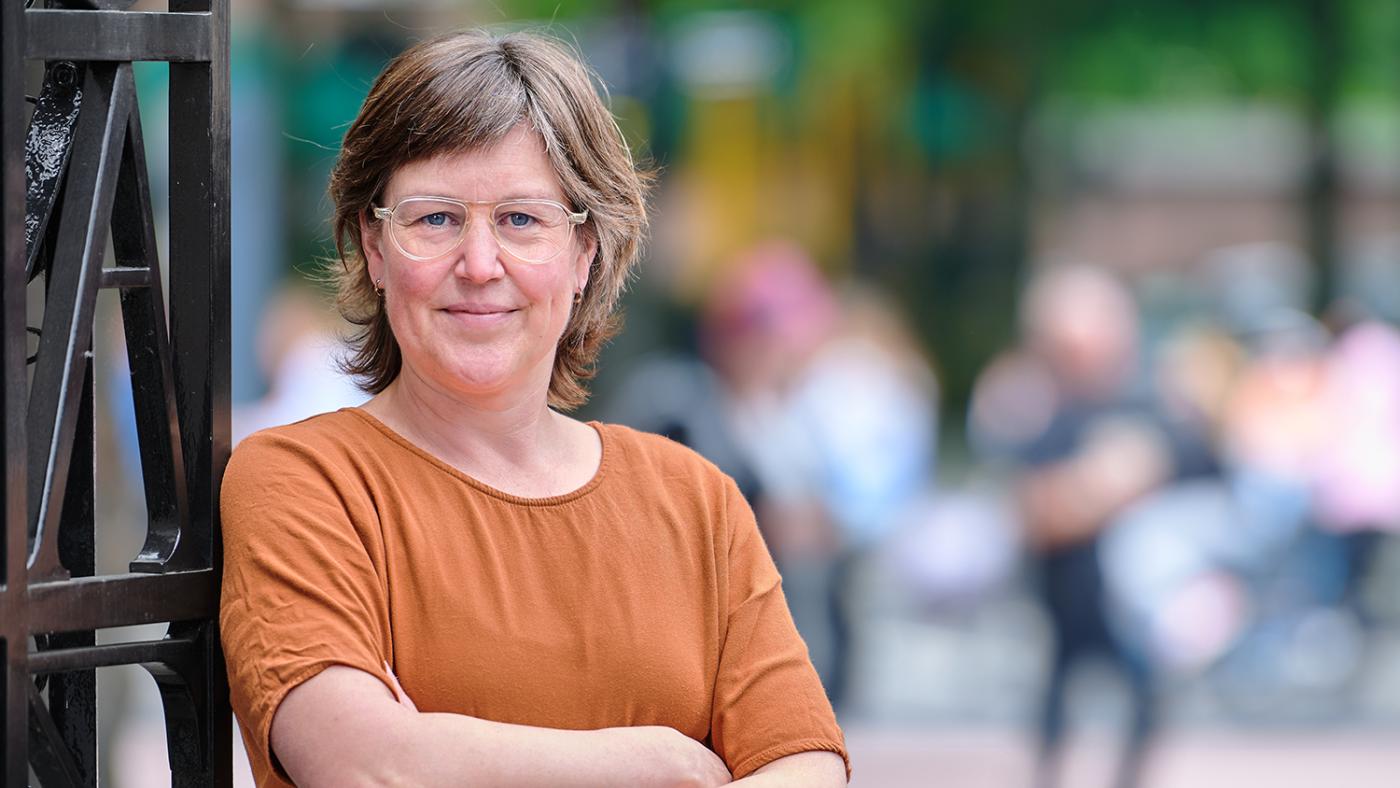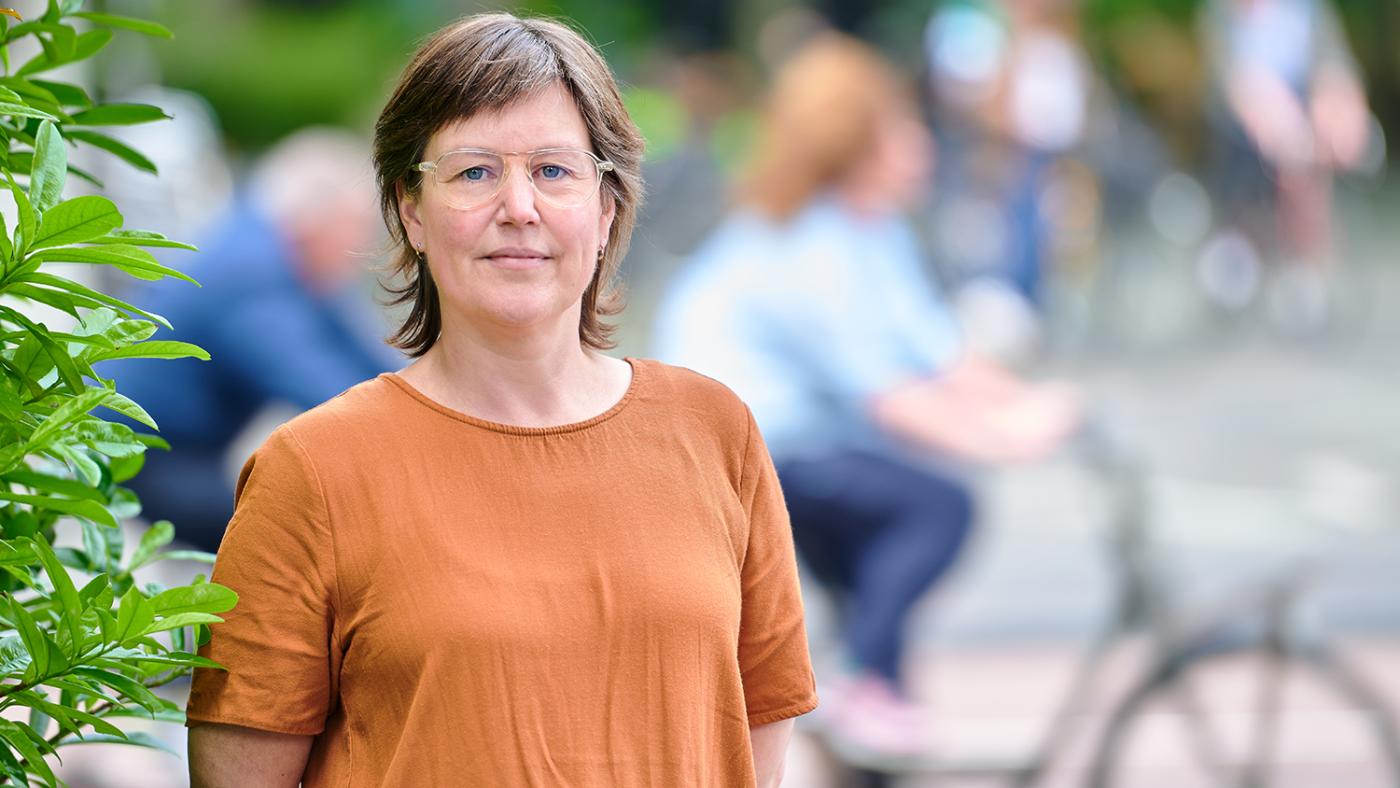UU scientist Ilse van Liempt about EU migration
‘Voters are led to believe migration can be kept away’

One of the most-discussed themes in Europe is how to deal with migration. How do you reduce the number of incoming migrants? What responsibility does the European Union (EU) have to shelter people in a humane way, and how reasonable are the deals the EU is making with Egypt and Tunesia? We’re seeing things going wrong all too often, for instance in the Mediterranean Sea, where boat refugees drown, or are pushed away, and those that do make it to the mainland end up in overflowing refugee camps, with unsafe and abominable living situations as a consequence.
Scientists working within the focus area Migration and Societal Change study the role the EU has in migration, and migration within the EU. Scientists look, for instance, at the feasibility and impact of the EU policies. Van Liempt: “In a sense, the EU policies are leading for national policies on migration. We’re seeing that for years now, attempts of creating a collective asylum system have failed, there are great differences between member states about who is granted refugee status, and attempts to create a fair distribution system have not succeeded yet. Some member states – of which Hungary is an extreme example – want to commit completely to the distribution regulations. We’re seeing that proposals from the European Commission mainly focus on integration and harmonisation, but within the EU member states, it’s more about national interests, with security, sovereignty and identity at the heart of the discussion.”
As a result, putting one’s own policies, and controlling the borders as well as the influx of refugees, are done at the expense of the protection of displaced people or migrant workers, she says. “Hence why researchers in this focus are don’t just look at the control side of migration, but especially at the implications of this narrow view of migrants and the consequences for society as a whole.”
EU migration deals
Van Liempt studied the EU Türkiye Deal, which she and a research team evaluated thoroughly. The analysis showed that within these migration deals, human rights are being violated on a massive scale. “Legally, there are quite some reservations you can have about sending people back to unsafe countries. This goes against the principle of non-refoulement, which indicates that people should not be sent back to countries where they can justifiably fear prosecution. Refusing access to the legal system, and blaming people for having travelled illegally, both go against the refugee treaty.
“The treaty also states that asylum seekers cannot be blamed for not having the correct travel documents because they had to flee a war situation. The discussions about ‘stop the boats’ in the UK, and that everyone who arrives illegally should be refused entry by default, feeds the idea that illegal travel should automatically mean not having the right to protection. But that reasoning is incorrect. For most refugees, it’s impossible to travel legally. They cannot apply for a visa, they have to leave in a hurry, and sometimes they’re not allowed to leave the country, for example because they’ve been conscripted. Then there’s no choice but to travel in secret.”
This analysis is important for the upcoming elections, as many parties in Europe are proposing similar deals, and a number of right-wing parties even want to cancel the Refugee Treaty. If the treaty is indeed cancelled, they can then refuse people at the border, and send them back to unsafe countries.

Distressing situations in Ter Apel
Van Liempt notes that the European focus on guarding the borders rather than protecting displaced people and regulating migration legally and safely is something we see in the Netherlands as well. She sees, for instance, that the current debate about migration focuses on control, which creates a false reality in which voters are led to believe that migration is something you can keep away, something that you can choose whether or not you want to have. The new government’s general agreement, in which regulations on migration are tightened further by the three ruling parties, doesn’t help break through that false reality.
“Still, migration is a part of society, and it happens in all sorts of ways. You can’t imagine a world in which no-one migrates, right? No studying abroad, no joining your girlfriend who lives in another country? It’s an illusion to think we won’t have any refugees in the future.”
Van Liempt continues: “Politicians who’ve made it their mission to get migration down to zero, have caused distressing situations in Ter Apel. The influx in the Netherlands is comparable to other years, and in comparison to our neighbouring countries, isn’t really that high; they’re very small numbers, really. This is in contrast to the images we see on the news, which make it seem as though countless people have to sleep outside on the grass. The issue is partially caused because the Netherlands only has one single location where people who arrive here can register. Politically, there isn’t any desire to shelter these people properly, and the crisis images are quite convenient if you want to communicate that the situation is untenable.”
Migration pact approved
With the European elections coming up, Van Liempt expects the elections to be crucial for the European migration policy, especially in reducing migration. “After years of negotiation, the EU Migration Pact was just approved, right before the elections. This will mean stricter control at the outer EU borders, and a stricter identification process on arrival to investigate who has a right to asylum. Shockingly, the decision was made to give member states the option of buying off their responsibility of sheltering refugees. The focus is on reducing the number of asylum seekers with quick procedures that can be imprecise. One controversial topic was detaining children. A compromise was reached that says only children who travel with their parents can be detained. Save the Children calls the Migration Pact a low point for children’s rights, and unbecoming of the EU. Moreover, fast procedures run the risk of imprecise outcomes, which can cost human lives.”
Another remarkable outcome, she says, is criminalising the assistance to undocumented migrants. Numerous organisations like No Border Kitchen, which provide assistance to people without residence permits on the Greek island of Lesbos, for example, are criminalised for human trafficking and espionage due to the help they offer. “We as researchers are extremely worried about what this will mean in practice for migrants and aid workers within the EU,” Van Liempt says.
Tough national agendas
“With regards to migration, the European elections are mainly about a political vote for a more restrictive or a more open migration and asylum policy. The election debates on this theme tend to focus mainly on national aspects, but these elections are about how Europe should design its asylum and migration system. So there’s definitely something to choose, here. On the right-wing side, the sole focus is controlling the national borders, while left-wing parties call for European solutions, with protection of refugees, and against the polarising, inhumane tone of the current migration debate. Migration in particular is a topic that should be dealt with at a European level. The far-right parties are doing well in the polls, with tough national agendas. They could obtain around a quarter of the seats in the European Parliament. There’s a danger that there will be a stricter migration policy, which shirks the responsibility on to other countries, and violates human rights, for instance by locking up children. That would be a big step backwards from the values that Europe stands for.
Focus area Migration and Societal Change
The focus area Migration and Societal Change is a platform for UU scientists that study migration and its corresponding societal change. The focus area highlights UU migration research, provides grants, and connects researchers from different scientific disciplines with each other, to foster new ideas and the sharing of knowledge.
Researchers within the social sciences, for example, study Europeans’ voting behaviour with regards to migration, and the current perceptions surrounding (im)migration. Anouk Smeekes, for instance, studies people’s approaches towards immigrants, and Marcel Lubbers studies the influence of the radical right to immigrants’ integration. Law and governance scientists like Rianne Dekker and Ekaterina R. Rashkova study how migrants and refugees use social media, how governments use big data for migration management, and how migrants become politically involved in their new countries.